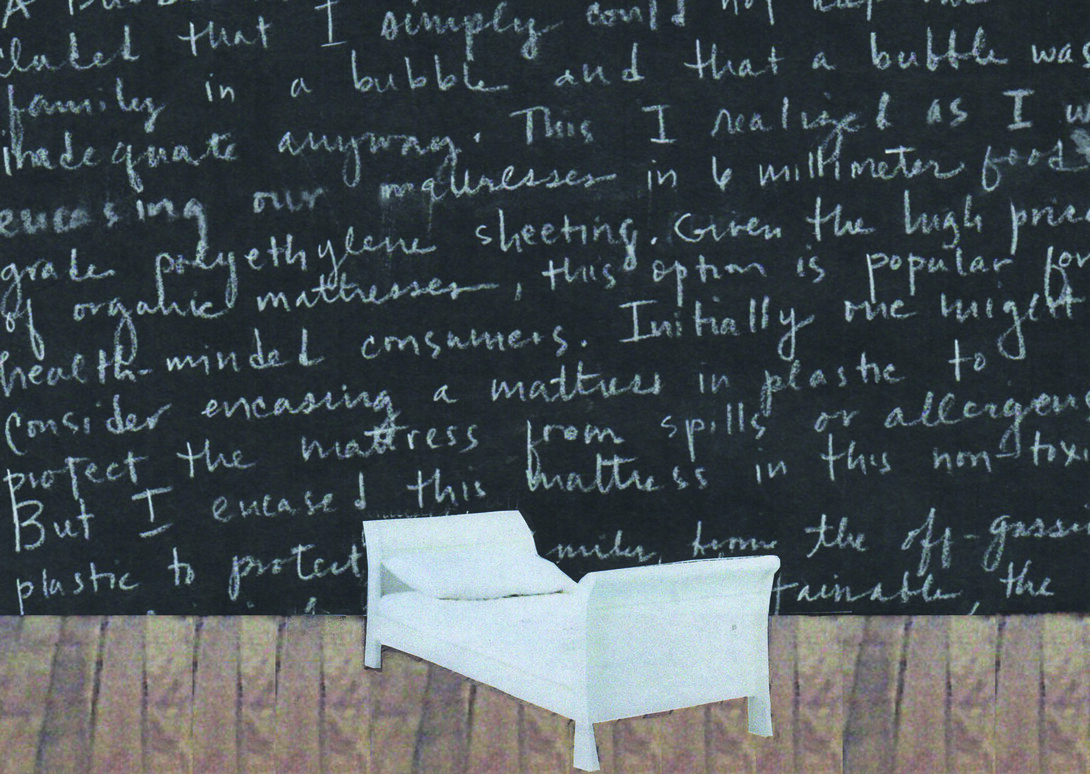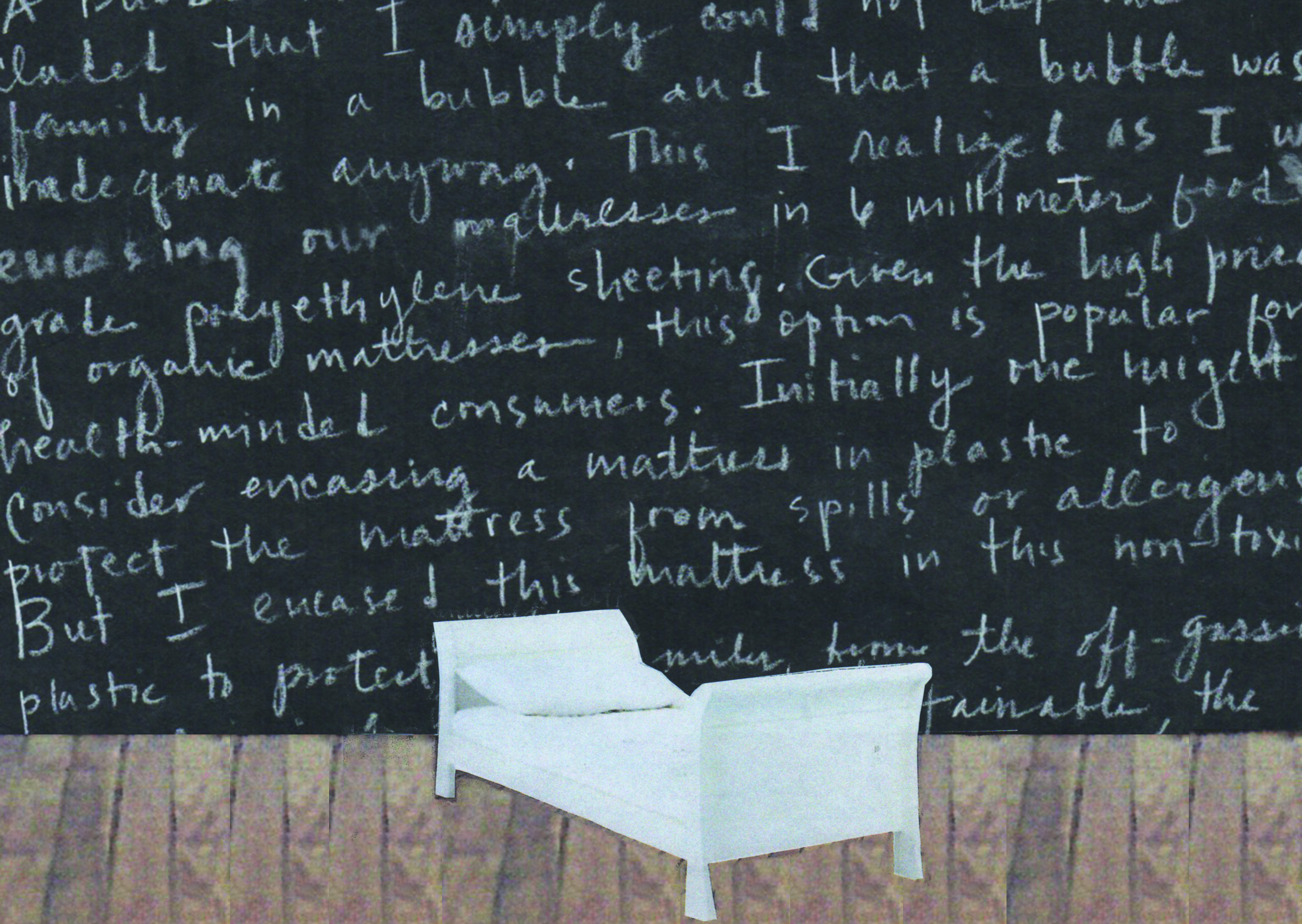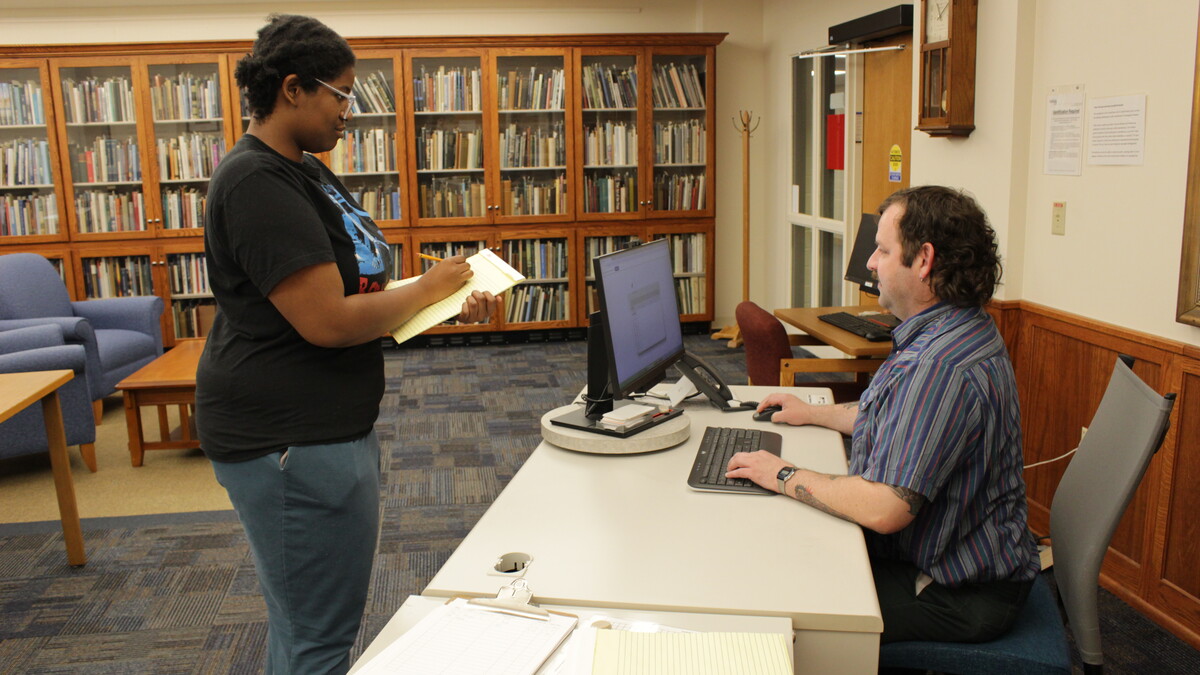
“Canary Concepts and the Hidden Danger of Ubiquitous Things” by University of Nebraska-Lincoln graduate student Stacey Skold is an exhibition with an agenda.
The ecological art installations address the consequences of fast fashion — the ecological footprint and the often-overlooked impact on human health and the environment. In doing so, the veil is lifted on seemingly harmless, everyday objects, as invisible chemicals and production practices are brought to light.
The exhibition will be on view April 11-22 at the Robert Hillestad Textiles Gallery on the second floor of the Home Economics Building at 35th and Holdrege streets on UNL’s East Campus.
In our fast-paced and technology-based society, humans have become disconnected from and desensitized to the origin, process and chemical makeup of items in our daily lives. Fast fashion is a prime example. In “Beaten,” a pair of denim jeans is dissected to reveal the often violent and harmful process involved with the production. The exhibition will provide visitors with the context to reconsider common objects and habits around them.
For Skold, it was work by Chris Jordan, a Seattle-based ecological artist, who inspired this current body or work. Jordan focuses on unconscious behaviors — namely mass consumerism — that impact the environment. Jordan is known for his “Running the Numbers” photography series and “Midway: Message from the Gyre” movie, which will be projected in the Hillestad Gallery. Skold sees her installations as a bridge between Jordan’s transformative work and the textile industry.
In “Stuffed,” ottomans sit on the floor against an unusual backdrop — a mural-sized furniture label. Visitors are invited to pick up and examine the upholstered stools to determine their chemical content. Works such as “Beaten,” “Stuffed” and “Wrapped” inform visitors about potentially harmful chemicals as well as how to avoid them. Furniture and clothing are often treated with chemicals, which need not be proven safe before they are used on a wide scale. The title of the exhibition reflects this problem: “Canary” references the practice of mining workers who would carry the caged birds into the mine tunnels as dangerous gases would kill the canary before killing the miners. Many argue that humans are the canaries when it comes to chemicals.
“Canary Concepts and the Hidden Danger of Ubiquitous Things” will close on Earth Day and the eve of the Textiles, Merchandising and Fashion Design fashion show.
The exhibition is the basis of Skold’s dissertation, “Ecological Art as Transformative Tool in Cultivating Environmental Knowledge, Environmental Sensitivity and Environmentally-Responsible Behaviors.” She is seeking participants for the study. For additional information or to become a participant, send email to sskold@yahoo.com.
The Robert Hillestad Textiles Gallery is part of the Department of Textiles, Merchandising and Fashion Design in the College of Education and Human Sciences at UNL. Hours are 8:30 a.m. to 4 p.m. weekdays and by appointment. Admission is free. Guest parking is available near the building and metered stalls are located in the Nebraska East Union lot. For more information, call 402-472-2911 or click here.
The gallery will have extended hours April 16 and 17 from noon to 6 p.m.








